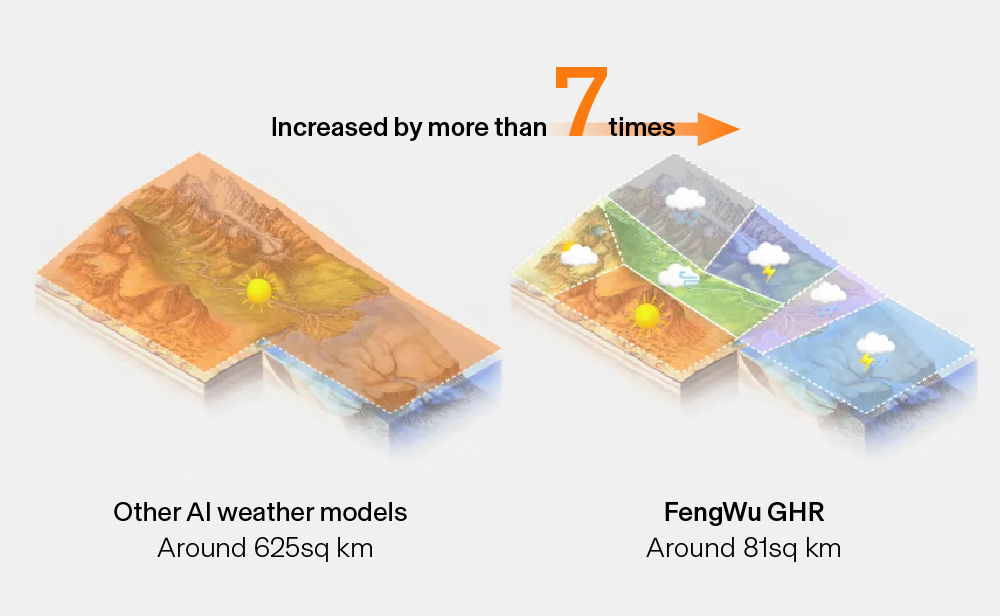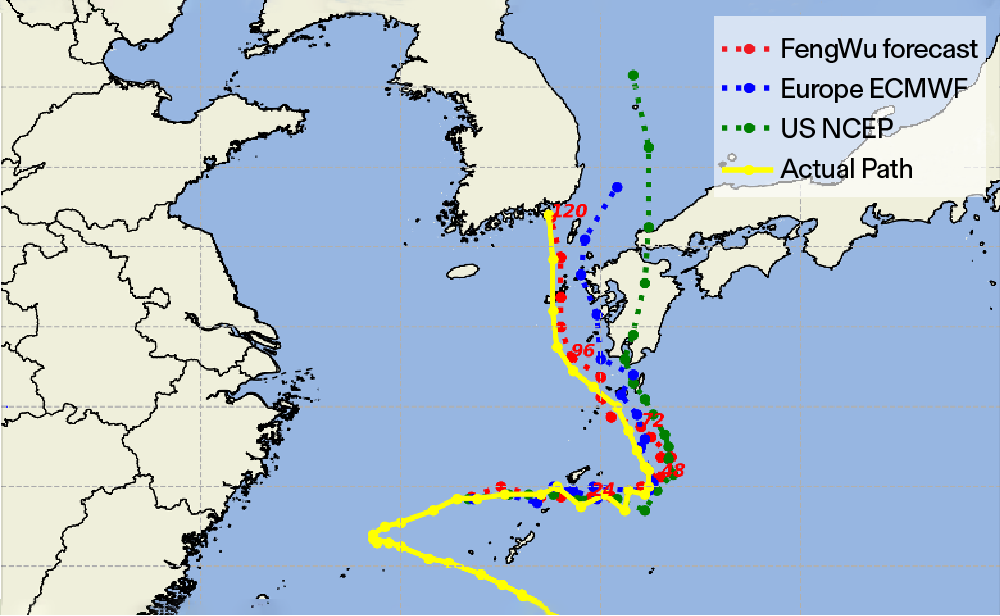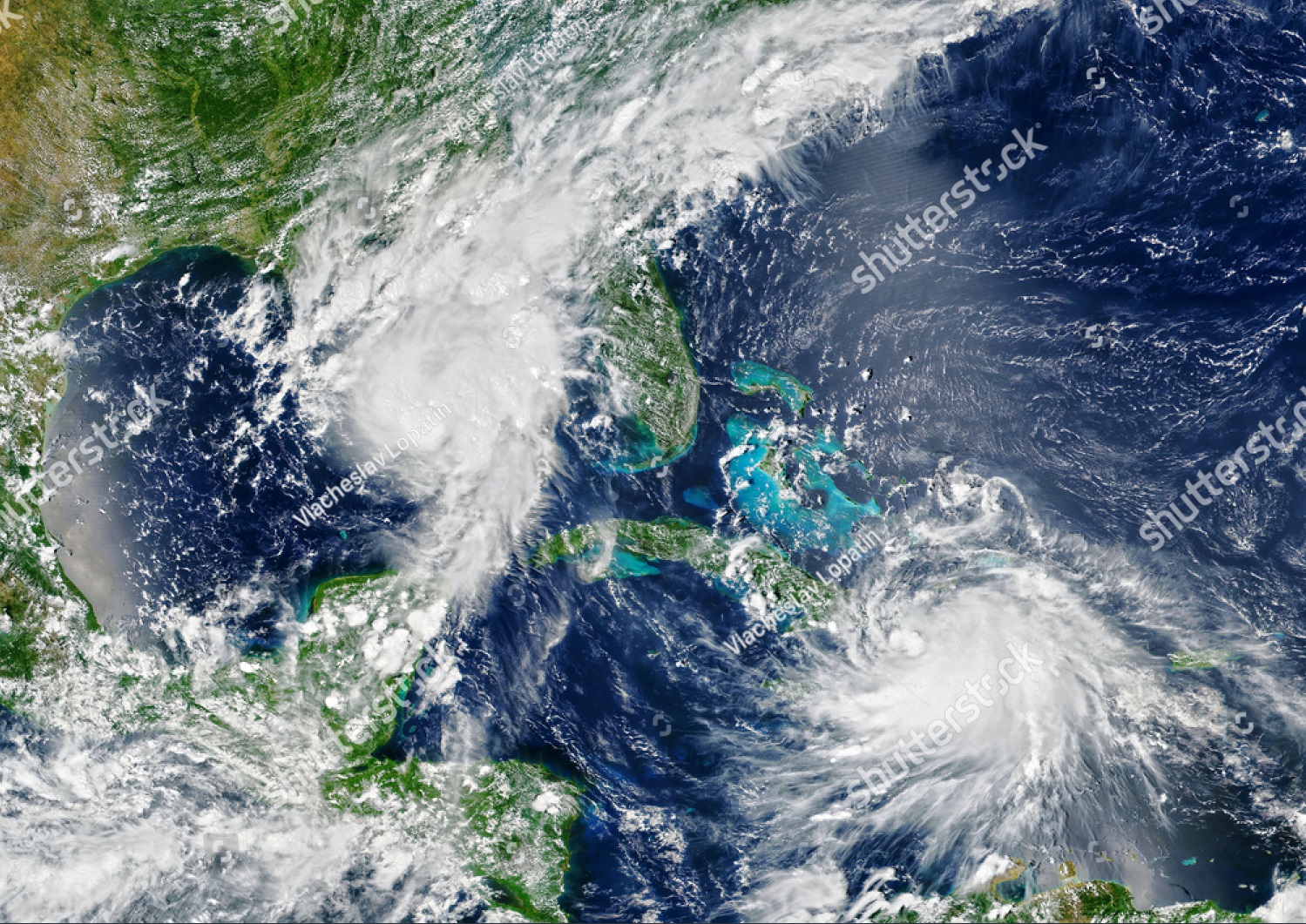It’s happened to all of us: a trip to the beach that turns out to be uncomfortably hotter than expected, a day of outdoor activities derailed by an unexpected downpour, an unforeseen chilly winter morning when we don’t bring enough warm clothes. We’d all prefer to avoid such surprises – and now we have a much better chance of doing so, courtesy of FengWu.
Developed at The Chinese University of Hong Kong (CUHK) and other organisations including the Shanghai Artificial Intelligence Laboratory, FengWu is an AI-powered system that’s set to revolutionise forecasting, making it not just immensely more accurate, but also able to sustain that accuracy over a far longer period of time.
Most of us only notice weather forecasts when they’re wrong, but forecasting accuracy has quietly improved in recent years. But it’s still held back by the technology it relies on: supercomputers which, however powerful they might be, still come with hard limitations on their processing abilities, particularly when it comes to the vast amounts of highly dynamic, volatile data needed to do something as complex as make weather predictions.
FengWu can do things that previous weather forecasting systems couldn’t because of its sophisticated use of AI technology to analyse that data with far greater precision. It analyses factors like temperature, humidity, windspeed and atmospheric pressure, while also leveraging historical data to enhance predictions. In fact, it was trained on a treasure trove of global weather data stretching back more than half a century, provided by intergovernmental body the European Centre for Medium-Range Weather Forecasts.

The result marks a significant advancement in meteorological science. FengWu enhances forecast resolution to an impressive 9km x 9km, with each meteorological data point covering over 80sq km. This spatial accuracy is seven times greater than that of current large-scale meteorological models. Previously, the best forecasting systems could only predict weather accurately for about ten days and provide comprehensive forecasts for entire regions. However, FengWu and FengWu-GHR can now break through key meteorological elements, offering effective and accurate forecasts beyond 11.25 days. They provide precise meteorological forecasts across different ranges within the region, with key elements predicted effectively up to 11 and 11.25 days.
“The large deep learning model helps a lot,” says Professor Ouyang Wanli, Global STEM Professor and Professor in the Department of Information Engineering at CUHK. “Previously, weather forecasting has been achieved by solving physical equations, but this AI-based method can learn the physical mechanisms. Compared with solving physical equations that require 10,000 CPUs [central processing units], deep learning models require only 1 GPU [graphics processing unit, a specialised circuit used to perform specific calculations], making them much faster to compute.”
The implications of the improvement are huge – and not just because a system like FengWu makes it easier for you and me to plan our holiday schedules. There are also potential benefits for a wide range of industries, including agriculture, transportation, aviation and power generation. Even more importantly, in an era when climate change is causing an increasing number of extreme weather events and climate-related disasters, FengWu’s extra accuracy promises to make emergency preparation more accurately targeted and more timely, potentially saving many lives.

Professor Ouyang said: “The most challenging element of the process, says, was downloading the very large amount of data involved, and then developing methods that were capable of handling it. Fortunately, The Shanghai Artificial Intelligence Laboratory provided researchers and other resources, including access to the GPUs needed to perform the calculations involved. It took just under a year to develop FengWu.”
It’s already received the seal of approval from the nation’s top meteorological authorities: the Hong Kong Observatory and the China Meteorological Administration are using it. Both of them have provided FengWu’s inventors with positive feedback, with the system proving particularly adept at predicting typhoons – pretty much the key skill for weather prediction models in many regions of the world. The team have also had interest from international organisations, including tech giants such as Google and Nvidia, and they expect the system to be adopted by weather forecasting authorities in a greater range of locations.
And they’re not finished yet: the researchers are now working on an even more powerful iteration of the system, trying to provide users with higher resolution and improved speed and accuracy.







